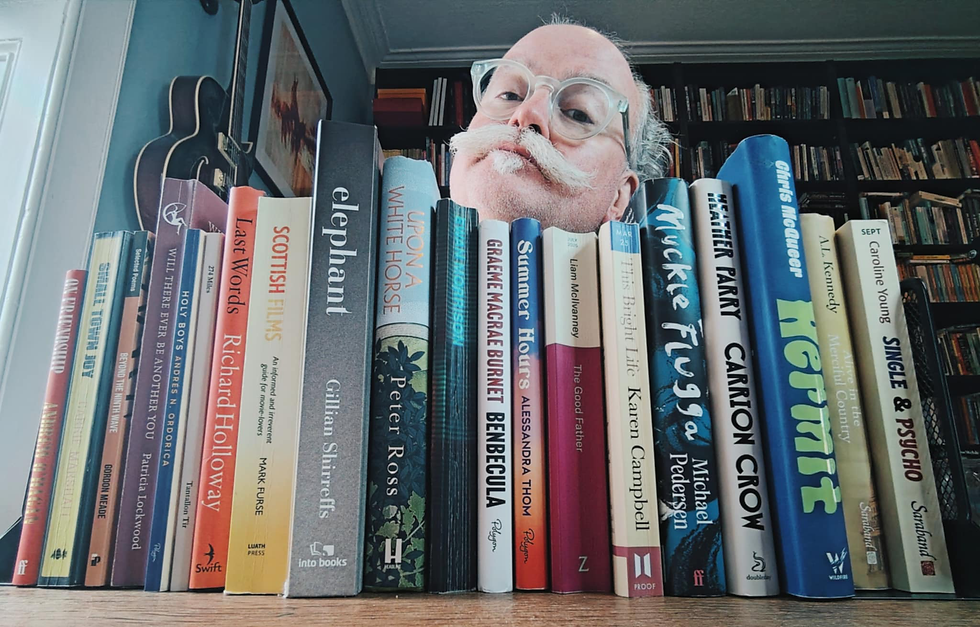Brief And To The Point: A Review Of Vicki Jarrett’s The Way Out…
- Alistair Braidwood

- Mar 25, 2015
- 3 min read

The best short stories are snapshots of people’s lives, leaving no doubt that there was a life before and that there will be (hopefully) one still to come. They work as brief glimpses of unusual events, revealing drama in the everyday. They are a form of writing which remains overlooked, but this is perhaps changing with recent collections by Kirsty Logan, Anneliese Mackintosh and Allan Wilson receiving deserved attention and critical acclaim, with the first two winning fully merited awards. The short story may just be having a moment in the literary sun.
To the above collections we can now add Vicki Jarrett’s The Way Out. In terms of style, it has a lot in common with Wilson’s Wasted In Love, sharing a sense of realism and a deceptively simple and accessible style of storytelling which often hides a devastating sting in the tale.Jarrett’s characters are suffering crises of one form or another, often as a result of a struggle to fit in or to stay afloat. They are individual stories which always provide a wider perspective to comment on social, political, cultural and even moral concerns. A prime example of this is the opening story ‘Something Wrong’ where a papergirl gets a warmhearted reminder of reality and humanity which brings her own situation into sharp focus.
The stories are set in the modern day theatres of Bingo Halls, kebab shops, shopping malls, department stores and chip shops, as well as revealing what goes on behind closed doors in people’s homes. These apparently ordinary lives are rendered extraordinary often by a simple twist to proceedings, or an arresting image which stays with you long after you have moved on to the next story. For instance, in ‘Worst Case Scenario’, the eating of heart has unforeseen consequences as cultures clash and beliefs are challenged.
In ‘Bingo Wings’, the subculture that is Bingo serves as the backdrop to secrets and lies, and anyone who has worked in the service industry will understand the unspoken conversation which unfolds in ’10 Types Of Mustard’, where the waitress perceives the tragicomedy taking place before her all too well, or the problems of dealing with customers in ‘White Pudding Supper’, a story which has a wonderful payoff.
There is often a degree of jeopardy for the protagonists in these stories, such as in the mini-series of ‘Home Security 1’ and ‘Home Security 2’, the unbearably poignant ‘Like Arseholes’, the dizzying ‘Mezzanine’ and ‘Red Bus’, which left me with a tear in my eye, and I’m not entirely sure why even after reading it three times over.
There’s a James Kelman short story, ‘Not not while the giro’, which both begins and ends halfway through a sentence, with a stream of consciousness in between. It’s one of the great examples of the form, and I would argue, and indeed have, that Kelman is a better short story writer than a novelist, and he’s a great one of those. Yet few people I know have read it. I mention this, not only to reinforce my point that the best short stories capture fleeting moments in peoples lives, but also to restate that it is a form of writing which remains underrated. However, some of Scotland’s greatest writers have wonderful short story collections which should be read as widely and treated as seriously as their longer fiction.
Alasdair Gray, A.L. Kennedy, Ali Smith, Janice Galloway and John Burnside are just a few who spring to mind, and it may be that their influence is now being felt by the next generation of writers. Or, it may be that the short story is the right form for these times as culture is consumed in smaller chunks and in different formats. Whatever the reason, you should embrace the short story, if you haven’t already, and Vicki Jarrett’s The Way Out is a great place to start. Never mind the width, feel the quality.









Comments